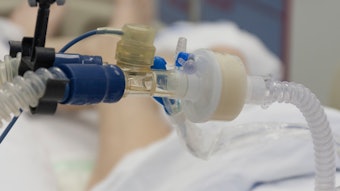Role of Data Registries in the Time of COVID-19

On April 1, 2020, the confirmed global burden of COVID-19 was more than 900,000 with 46,413 deaths1. Despite worldwide calls for social distancing and containment, the incidence of the disease continues to increase.
COVID-19 is a respiratory tract infection caused by the novel coronavirus (SARS-CoV2). Preliminary analyses from the Chinese Center for Disease Control and Prevention indicated an overall case fatality rate (CFR) of 2.3%; however the CFR was higher in older adults (14.8% in those 80± years) and 49% of all critical cases.2 Those with preexisting conditions (cardiovascular disease (CVD), diabetes, chronic respiratory disease, hypertension, and cancer) also had higher CRFs2. In the United States, 116 million adults have hypertension, 26 million US adults have diabetes mellitus, 9% have preexisting CVD3 33and may therefore be at greater risk of complications or adverse health outcomes from COVID-19 infection.
Many researchers are actively engaged in developing vaccines and therapeutics for COVID-194 and the FDA has provided updated guidance for clinical trials not related to the viral infection during the pandemic.5 Clinical registry data can provide valuable insights into patient characteristics, treatment patterns, and clinical outcomes in patients hospitalized with CVD during this time period. While randomized clinical trials are the gold standard for treatments, real world evidence collected in a patient registry of clinical encounters provides a unique opportunity to potentially study the clinical effectiveness of treatments of COVID-19 in a CVD patient population.
Beginning early April 2020, COVID-19 specific data elements will be added to each of the American Heart Association’s (AHA) Get With The Guidelines (GWTG) registry modules. GWTG is a voluntary quality improvement program, capturing data on patients hospitalized with atrial fibrillation, coronary artery disease, heart failure, stroke and in-hospital cardiac arrest. Specifically, health care providers and data abstractors will be able to provide information on active viral or bacterial infections during hospitalization, time-sensitive treatment delays related to personalized protective equipment (PPE), and medical history of emerging infectious diseases such as COVID-19 to understand long-term impacts. These data elements are designed to be adaptable and updated quickly in response to future emerging infections.
Time-sensitive emergencies, like ST-elevation myocardial infarction (STEMI), stroke and cardiac arrest will undoubtedly be impacted. By collecting data on clinical encounters during this pandemic, we could quantify the real-world impact to inform care during future public health emergencies. Early data from a Hong Kong hospital, comparing STEMI patient door to PCI times prior to and during the COVID-19 outbreak showed treatment delays6. US first-responders, emergency room clinicians and cath-lab operators may be delayed not only by the need to don PPE, decontaminate equipment and rooms, and operate with significantly increased patient volume, adding to strained resources as the volume of hospitalizations increase. It is important to understand reasons for treatment delays and apply those learnings to future scenarios.
Full text of this article is available at https://www.ahajournals.org/doi/10.1161/CIRCOUTCOMES.120.006766









